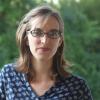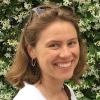History of Anthropology
Please set your timezone at https://www.chstm.org/user
Consortium Respectful Behavior Policy
Participants at Consortium activities will treat each other with respect and consideration to create a collegial, inclusive, and professional environment that is free from any form of discrimination, harassment, or retaliation.
Participants will avoid any inappropriate actions or statements based on individual characteristics such as age, race, religion, ethnicity, sexual orientation, gender identity, gender expression, marital status, nationality, political affiliation, ability status, educational background, or any other characteristic protected by law. Disruptive or harassing behavior of any kind will not be tolerated. Harassment includes but is not limited to inappropriate or intimidating behavior and language, unwelcome jokes or comments, unwanted touching or attention, offensive images, photography without permission, and stalking.
Participants may send reports or concerns about violations of this policy to conduct@chstm.org.
Upcoming Meetings
There are no currently scheduled upcoming events.
Past Meetings
-
December 2, 2020
Session 3: "Race, slavery, ethnography"
This session considers two very different texts—one ethnographic, one historical—that consider racism, race science, and slavery as central structures of "enlightened" industrial modernity:
- Deborah A. Thomas, Political Life in the Wake of the Plantation: Sovereignty, Witnessing, Repair (Duke University Press, 2019).
- Andrew S. Curran, The Anatomy of Blackness: Science and Slavery in an Age of Enlightenment (Johns Hopkins University Press, 2011).
Below are suggested excerpts for a short, medium, and longer reading, depending on the time readers have available (all readings/excerpts are available in the zip file below if you are logged into your CHSTM account):
SHORT VERSION: 56 pp
- Thomas: introduction excerpts pp. 1-7, 14-19; chapter 1 excerpts pp. 22-32, 52-60
- Curran: chapter 4 excerpts pp. 167-86, 190-94, 199-204
MEDIUM VERSION: 78 pp- Thomas: add preface pp. xi-xv
- Curran: add preface pp. ix-xi and introduction excerpt pp. 1-15
LONG VERSION: 150 pp- Thomas: read full preface + introduction + chapter 1
- Curran: read full preface + introduction + chapter 4
For those interested in hearing the oral testimony of Tivoli Gardens community members captured by Thomas (in ch 1 excerpts), see also: https://www.tivolistories.com/bearing-witness.html.
Additional readings:- David Graeber, “Turning Modes of Production inside out: Or, Why Capitalism Is a Transformation of Slavery,” Critique of Anthropology 26, no. 1 (2006): 61–85.
- Terence D. Keel, “Religion, Polygenism and the Early Science of Human Origins,” History of the Human Sciences 26, no. 2 (2013): 3–32.
- Kavita Philip, Civilizing Natures: Race, Resources, and Modernity in Colonial South India (Rutgers University Press, 2004). [Excerpt: introduction]
-
November 4, 2020
Session 2: "Race in American anthropology"
This session focuses on work by Lee D. Baker to explore the history of American anthropology and its role in creating, reinforcing, and challenging racial categories. We selected a forthcoming piece from Baker to capture a picture of American anthropology that is wider than its predominant figure, Franz Boas (around which many histories have been narrated). However, recognizing the continuing importance of Boas studies, we will also read an essay by Geoff Bil that reviews 3 major recent works on Boas and offers a critical evaluation of the direction Boas histories are going.
Main readings:- Lee D. Baker, "W.E.B. Du Bois & Anthropology." (forthcoming in The Oxford Handbook of W.E.B. Du Bois)
- Geoff Bil, “Boas in the Age of BLM and Idle No More: Re-Evaluting the Boasian Legacy,” History of Anthropology Review 44 (September 14, 2020).
Additional readings:- Ira Bashkow, “The Boas Circle vs. White Supremacy,” History of Anthropology Review 44 (June 15, 2020), http://histanthro.org/reviews/the-boas-circle-vs-white-supremacy/.
- Lee D. Baker, From Savage to Negro: Anthropology and the Construction of Race, 1896-1954 (Berkeley: University of California Press, 1998), https://www.ucpress.edu/book/9780520211681/from-savage-to-negro. [Introduction and chapter 5, "Rethinking Race at the Turn of the Century: W.E.B. Du Bois and Franz Boas," provided below.]
-
October 7, 2020
Please use pass code 989255 to join the meeting
Session 1: "Anthropology and the universal liberal human"
In this first session, led by Rosanna Dent (NJIT), we will read pieces by Ryan Cecil Jobson and Sylvia Wynter that consider how anthropology is mired by problems of the (so-called) universal liberal human. Readings for this opening session are longer than we anticipate future sessions will be (normally we aim for ~50pp max). Given the length of Wynter's piece, we have provided Elisabeth Paquette's encyclopedia article for a guide to Wynter's work. PDFs of all readings (main and additional) are provided in the "Session 1 Readings."
Main readings:- Ryan Cecil Jobson, “The Case for Letting Anthropology Burn: Sociocultural Anthropology in 2019,” American Anthropologist 122, no. 2 (2020): 259–71, https://doi.org/10.1111/aman.13398.
- Sylvia Wynter, “Unsettling the Coloniality of Being/Power/Truth/Freedom: Towards the Human, After Man, Its Overrepresentation--An Argument,” CR: The New Centennial Review 3, no. 3 (2003): 257–337, https://doi.org/10/d2js45.
Additional readings:- Elisabeth Paquette, “Wynter and Decolonization,” in Encyclopedia of Educational Philosophy and Theory, ed. Michael A. Peters (Singapore: Springer, 2017), https://doi.org/10.1007/978-981-287-532-7_476-1.
- Aisha M. Beliso-De Jesús and Jemima Pierre, “Special Section: Anthropology of White Supremacy (introduction),” American Anthropologist 122, no. 1 (2020): 65–75, https://doi.org/10.1111/aman.13351.
- « first
- ‹ previous
- 1
- 2
- 3
- 4
Group Conveners
-

Rosanna Dent
Rosanna Dent is Lipton Lecturer (assistant professor) in the Department of History and Philosophy of Science at Cambridge, where she teaches courses on the history of science, medicine, and technology, with an emphasis on the global South. She is currently working on a book manuscript on the history of twentieth century research in A'uwe (Xavante, Indigenous) communities in Central Brazil. The book examines how a half-century of iterative interactions of scholars and community members have shaped knowledge production as well as the political and social realities of both subjects and scholars.
-

Judy Kaplan
Judy Kaplan is a cultural and intellectual historian of the human sciences with a focus on nineteenth- and twentieth-century linguistic research. She has published widely on subjects from orientalism to sound studies and is currently working on a new project that unravels histories of research on language universals. She is the NSF Fellow in Residence at the Consortium for History of Science, Technology and Medicine.
-

Paula Lopez
Paula López Caballero is a historian and anthropologist working at the National University in Mexico. The transversal question of her research is to critically examine indigeneity as a historical variable where the State, knowledge production, and ethnographic mediation are deeply intertwined. Her current project examines the first long-term anthropological expeditions in Mexico by Mexican- and U.S.-based social scientists from 1940 to 1960, as a privileged site to document how the daily, routine and systematic encounter with native inhabitants during fieldwork implied new standards of scientific objectification and representation.
-

Matthew Watson
Matthew C. Watson is an associate professor of anthropology at Mount Holyoke College. As an anthropologist and historian of the social sciences, his published work includes wide-ranging journal articles and an experimental ethnography of Maya hieroglyphic decipherment, Afterlives of Affect: Science, Religion, and an Edgewalker’s Spirit (Duke UP, 2020). His current research centers the formation of modern Americanist cultural anthropology through large, collaborative fieldwork projects and field schools in southern Mexico. At present, he is writing a history of the Harvard Chiapas Project (1957-1980) that documents an array of mediating fieldwork techniques and technologies: off-road vehicles, aerial photography, paper technologies, and computerized data processing and storage.